Python Developer Course
“Code your future: Become a Full Stack Python Pro at CMIT Institute”
Offline / Online / Hybrid


Python is a powerful high-level, object-oriented programming language. Python classes providing basic course is helpful for the students who wants to learn the basic parts of the Python Programming language .This Python course will covers all syntax that used in Python, all about object oriented programming, all methodologies of database handling with SQLite/MYSQL, GUI programming that uses Tkinter library, Turtle graphics, etc. Introduction to Django – web framework and Introduction to Network Programming are also included in this training.
Quick Enquiry
Gallery
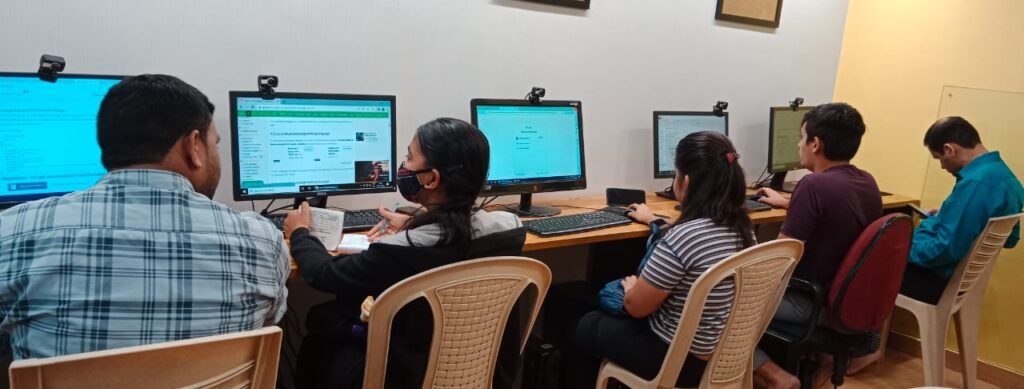
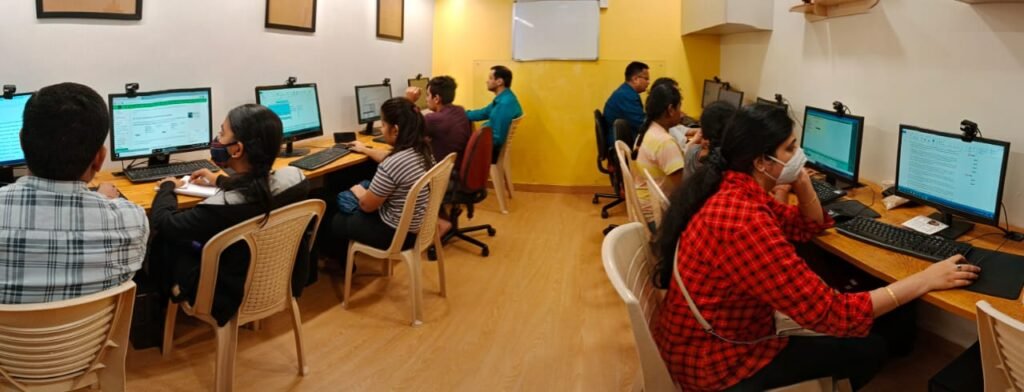
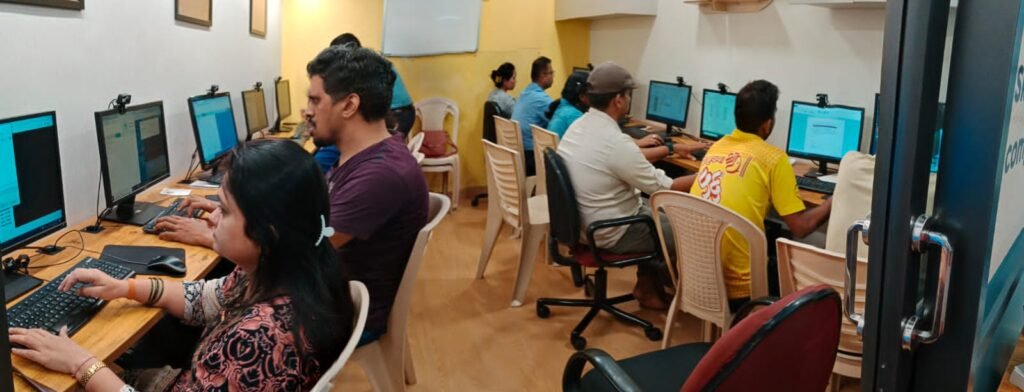
Students Reviews
Trustindex verifies that the original source of the review is Google. I've recently completed diploma course in CMIT computer institute , , mulund east and it was really helpful. The course taught me a lot skills in computer. The mentors here are very helpful and understandable.There teaching skills are very goodTrustindex verifies that the original source of the review is Google. As being a cmit student all the faculty has helped me to experience a good journey towards the Microsoft World and Tally prime which has enhanced my technical journey.Trustindex verifies that the original source of the review is Google. The faculty is very great and supportive the teachers are so good in teaching and plus the doubts are always cleared thoroughlyTrustindex verifies that the original source of the review is Google. A very good experience overall. The faculties try their best to make us understand the concept.Trustindex verifies that the original source of the review is Google. The institute is good all teaching staff in nice they teach us till we don't understand the concept of the topic Thank you!!Trustindex verifies that the original source of the review is Google. Overall experience was good, the Excel teacher teaching style was good, But I would have loved if it was only one group teaching for full 1 hour. But overall good value addition and good value for money. ThankyouTrustindex verifies that the original source of the review is Google. I recently completed the Advanced Excel course in CMIT Computer Institute, Mulund East, and it was really helpful! The course taught me a lot of new Excel skills that I can now use for work or personal projects.Trustindex verifies that the original source of the review is Google. It was an amazing experience here learning at CMIT , all my doubts were cleared and explained throughly !Trustindex verifies that the original source of the review is Google. Very good
Why Learn Python ?
Python is known for its simple and readable syntax, which makes it an excellent language for beginners.
Python can be used for a wide range of applications, including web development, data analysis, machine learning, artificial intelligence, scientific computing, automation, and more.
Python has a large and active community of developers. This means you can find plenty of resources, libraries, and frameworks to help you solve problems and develop projects efficiently.
Python developers are in high demand across many industries.
Python Developer Level Wise Content
- Beginner Python Developer
- Intermediate Python Developer
- Advanced Python Developer
- Variables, data types, and operators.
- Control structures (if statements, loops).
- Functions and basic parameter passing.
- Exception handling.
- Basic input and output.
- Lists, tuples, and dictionaries.
- Understanding and working with strings.
- List comprehensions.
- Reading and writing files.Small scripting projects to practice your skills.
- Understanding advanced OOP concepts like polymorphism and abstraction.
- Working with decorators and class inheritance.
- More in-depth knowledge of data structures.
- Algorithmic problem solving.
- Familiarity with popular Python libraries for your specific area of interest
- Writing unit tests.
- Using debugging tools effectively.
- Understanding and using version control systems like Git.
- Introduction to working with databases using libraries like SQLite, MySQL, or PostgreSQL.
- Making API requests and handling responses.
- Understanding RESTful APIs.
- Building more complex applications or projects.
- Threading and multiprocessing.
- Metaclasses and dynamic class creation.
- Context managers.
- Generators and coroutines.
- Closures and function decorators.
- Profiling and optimizing code for speed and memory usage.
- Advanced web frameworks like Django or Flask.
- Building RESTful APIs.
- Advanced data manipulation and analysis with Pandas and NumPy.
- Data visualization with libraries like Matplotlib or Seaborn.
- Deep learning frameworks like TensorFlow and PyTorch.
- Building and training complex machine learning models.
Who Should Learn Python ?
Jobseekers
B TECH..
Professionals
M Com, MBA IT &
others
Future of Python Developer
- Python’s dominance in the fields of artificial intelligence (AI) and machine learning (ML) was a strong indicator of its future.
- Python’s robust ecosystem for data analysis and visualization with libraries like Pandas, NumPy, and Matplotlib made it the go-to language for data scientists. The demand for data professionals and Python skills in this domain was expected to grow.
- Python frameworks like Django and Flask continued to be popular for web development. Python web development was expected to remain relevant, especially for startups and small to medium-sized projects.
- Python’s simplicity and the availability of libraries like MicroPython and CircuitPython made it a viable choice for IoT development, potentially leading to more growth in this area.
- Python was often used in serverless and cloud computing environments. As cloud computing continued to grow, Python could remain important in these contexts.
Average Salary For Python Developer
FAQ"S
| Jobs | Salary (in LPA) |
|---|---|
| Python Developer | 5.6 LPA |
| Lead Python Developer | 3.0 LPA |
| Python Software Developer | 5.8 LPA |
Average salary for a Python Developer in India is 5.6 Lakhs per year (₹46.9k per month). Salary estimates are based on 14.5k latest salaries received from various Python Developers across industries.
- JP Morgan Chase Python Developer Salary – ₹17.7 Lakhs per year
- Google Python Developer Salary – ₹11.4 Lakhs per year
- Ernst & Young Python Developer Salary – ₹11.0 Lakhs per year
- Harman Connected Services Python Developer Salary – ₹8.9 Lakhs per year
- Corestack Python Developer Salary – ₹8.3 Lakhs per year
Average starting Salary for Python Developer in India is around ₹1.5 Lakhs per year (₹12.5k per month). No prior experience is required to be a Python Developer.
Highest salary that a Python Developer can earn is ₹8.8 Lakhs per year (₹73.3k per month).
An Entry Level Python Developer with less than three years of experience earns an average salary of ₹3.8 Lakhs per year. A mid-career Python Developer with 4-9 years of experience earns an average salary of ₹8.2 Lakhs per year, while an experienced Python Developer with 10-20 years of experience earns an average salary of ₹16.6 Lakhs per year.
- Internet – ₹7.3 Lakhs per year
- Software Product – ₹5.9 Lakhs per year
- Recruitment – ₹5.6 Lakhs per year
- Financial Services – ₹5.3 Lakhs per year
- IT Services & Consulting – ₹5.2 Lakhs per year
- These are the top skills of a Python Developer based on 12k jobs posted by employers.
- Python
- Django
- Javascript
- Flask
- SQL
Affiliations / Authorizations
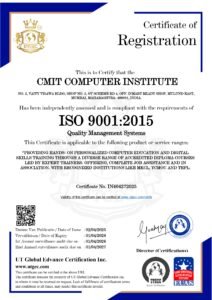
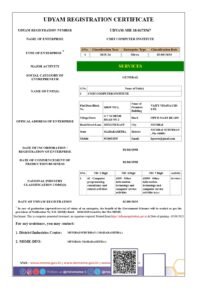
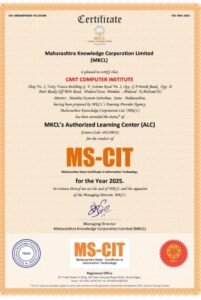

Why Choose CMIT ?

Certified and Experienced Trainers
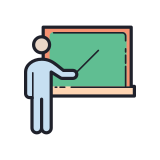
Weekdays / Weekend Batches Available

Affordable Fees

Small Batch Sizes
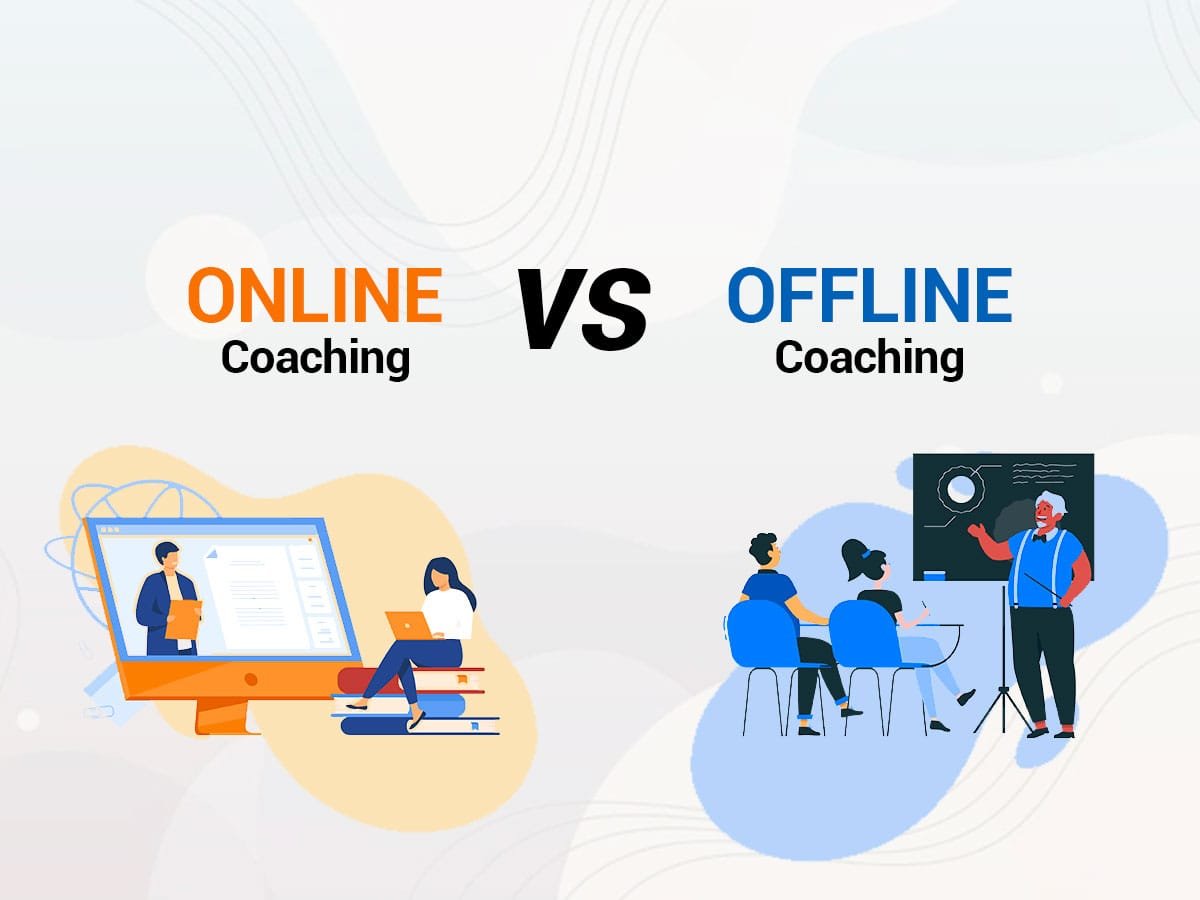
Flexible Learning Options

Individual Attention

Free Wi-Fi Facility

Periodical Assessment
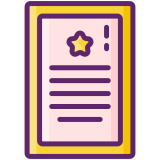
Course Completion Certificate

100% Job Assistance


